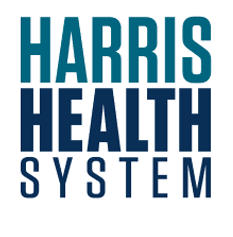Treatment for Joint Pains Due to Aromatase Inhibitor Therapy in Breast Cancer
| Status: | Completed |
|---|---|
| Conditions: | Breast Cancer, Cancer, Chronic Pain, Orthopedic |
| Therapuetic Areas: | Musculoskeletal, Oncology, Orthopedics / Podiatry |
| Healthy: | No |
| Age Range: | Any |
| Updated: | 2/4/2013 |
| Start Date: | October 2012 |
| End Date: | October 2013 |
| Contact: | Polly Niravath, MD |
| Email: | niravath@bcm.edu |
| Phone: | 713-798-1311 |
Aromatase Inhibitor-Induced Arthralgia: A Proposed Management Algorithm
Aromatase inhibitors are the most effective adjuvant anti-hormonal therapy for estrogen
receptor positive (ER+) post-menopausal breast cancer patients, with proven superiority over
tamoxifen in terms of disease-free survival, time to recurrence, and contralateral breast
cancer. However, approximately half of the women who take this drug will develop significant
joint pains, termed Aromatase Inhibitor-Induced Arthralgia (AIA). Though this medicine
should be taken for 5 years, the joint pain can be so troublesome that up to 13% may
prematurely discontinue it because of the arthralgia, thus sacrificing their best chance of
recurrence-free survival. Nonetheless, neither the etiology nor optimal management of AIA is
clearly understood, leaving both doctor and patient rather frustrated.
The investigators therefore propose to test the hypothesis that AIA can be effectively
treated by a new clinical algorithm, and that effective treatment of the problem will lead
to improved compliance with Aromatase Inhibitor (AI) therapy. The algorithm is a clinical
pathway for treating AIA which incorporates, in a rational and step-wise manner, a series of
interventions based on the available evidence. Interventions include acupuncture, pain
medication, weight bearing exercise, and other commonly used therapies for AIA.
The investigators will enroll 100 women who are beginning adjuvant AI therapy and assess
each woman's baseline joint pains via a questionnaire as well as grip strength measurement.
The investigators will then periodically repeat these tests during AI therapy in order to
systematically quantify and characterize AIA. Those women who develop AIA during the course
of the study will be placed on the clinical algorithm, and the investigators will observe
whether their joint pains significantly improve (as measured by questionnaire and grip
strength measurement) after institution of the algorithm. The investigators will also
determine whether their compliance is improved compared to historical controls, and at least
non-inferior to the women in the study who do not develop AIA. Finally, the investigators
will measure serum estrogen level at baseline and then periodically during AI therapy to
investigate whether more dramatic decline in estrogen level after initiation of an AI leads
to significant AIA and earlier time to onset.
This study targets a very common cause of pain among breast cancer survivors and aims to
offer an effective treatment strategy to alleviate pain and improve quality of life as well
as medication compliance.
Inclusion Criteria:
- age greater than 18 years
- stage I-III ER+ breast cancer
- beginning adjuvant AI therapy
- post-menopausal as defined by any of the following: age >60 years, history of
bilateral oophorectomy, amenorrhea for 1 year with intact uterus and ovaries, or
serum estradiol and FSH concentrations in the post-menopausal range along with either
amenorrhea for 6 months or previous hysterectomy
Exclusion Criteria:
- previous use of an aromatase inhibitor
We found this trial at
2
sites
Ben Taub General Hospital Located in the heart of the Texas Medical Center, Ben Taub...
Click here to add this to my saved trials
